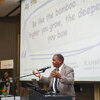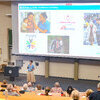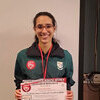Building a healthier Africa through discovery
04 April 2024 | Story Laura Rawden. Read time >10 min.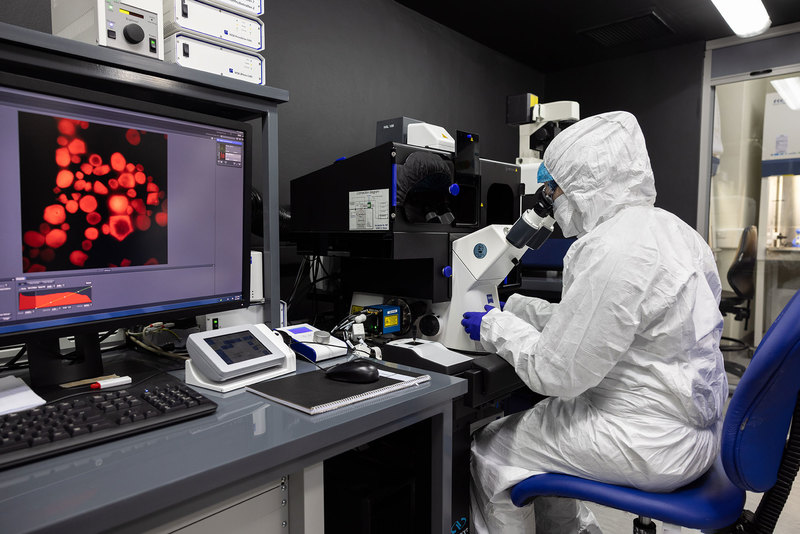
Globally relevant research that addresses urgent local health challenges is at the forefront of the work done by these South African Research Chairs Initiative (SARChI) Chairs and a Centre of Excellence (CoE) at the University of Cape Town (UCT), which are coming to the end of their 15-year funding cycle. Over that time, they have developed African talent and international collaborations that contribute significantly to vaccine and drug discovery in the context of the continent. This work falls under the theme “Building a healthy Africa”, one of the five research focal areas devised under UCT’s Vision 2030.
The SARChI programme was created to establish and support research leaders in various academic disciplines. Initiated and funded by the national Department of Science and Innovation (DSI) and the National Research Foundation (NRF), these chairs enhance research capacity and excellence at UCT. CoEs are similarly awarded by the DSI through the NRF. These physical or virtual centres of research are multi-institutional and have allowed researchers to collaborate across disciplines and institutions on long-term projects that are locally relevant and internationally competitive.
As they come to the end of their national funding, with a legacy of cutting-edge research and innovation, these chairs, the CoE and the work they do have significant impact on some of South Africa’s and Africa’s most pressing health problems.
Paradigm-shifting TB discoveries
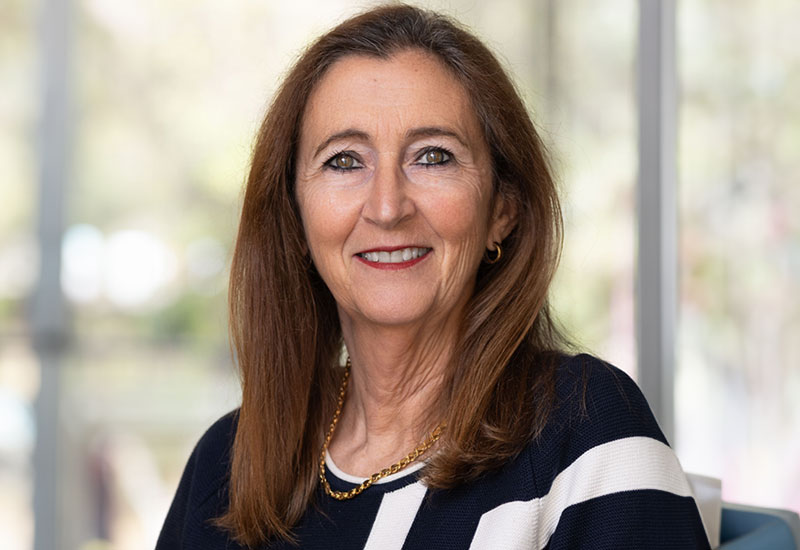
Enhancing the capabilities of African scientists to address local health challenges are researchers from the UCT node of the DSI/NRF Centre for Excellence for Biomedical TB Research (CBTBR).
Studying aspects of the physiology and metabolism of Mycobacterium tuberculosis, the bacterium that causes tuberculosis (TB), the node aims to develop tools for the diagnosis, prevention and treatment of TB.
Groundbreaking research led by the node, done in collaboration with researchers at the Desmond Tutu HIV Foundation’s Aerobiology Research Centre in Masiphumelele, has suggested that normal breathing might be a major contributor to TB transmission. This notion challenges the current assumption that coughing is the primary driver of TB transmission.
“This paradigm-shifting discovery, together with the findings from follow-up studies, has profound implications for understanding the dynamics of TB transmission; by providing key insight into who is transmitting the TB bacillus, and when, where and how this occurs,” explained CBTBR co-director and UCT node head, Professor Valerie Mizrahi, who also heads up the Institute of Infectious Disease and Molecular Medicine (IDM).
“The UCT node of this CoE has formed the platform for training the next generation of innovative biomedical TB scientists.”
These findings have important implications for local healthcare approaches. Africa bears a significant proportion of the global burden of TB – a disease considered a national health emergency in South Africa.
The UCT node also cultivates important multidisciplinary collaborations in TB drug discovery. Working with colleagues across the world, it aims to leverage local talent and innovation to identify solutions to the problems caused by one of the continent’s most threatening diseases.
“The UCT node of this CoE has formed the platform for training the next generation of innovative biomedical TB scientists who are accustomed to working within multidisciplinary teams at the interface of the laboratory, clinic and community,” said Professor Mizrahi.
Pipeline of new vaccines
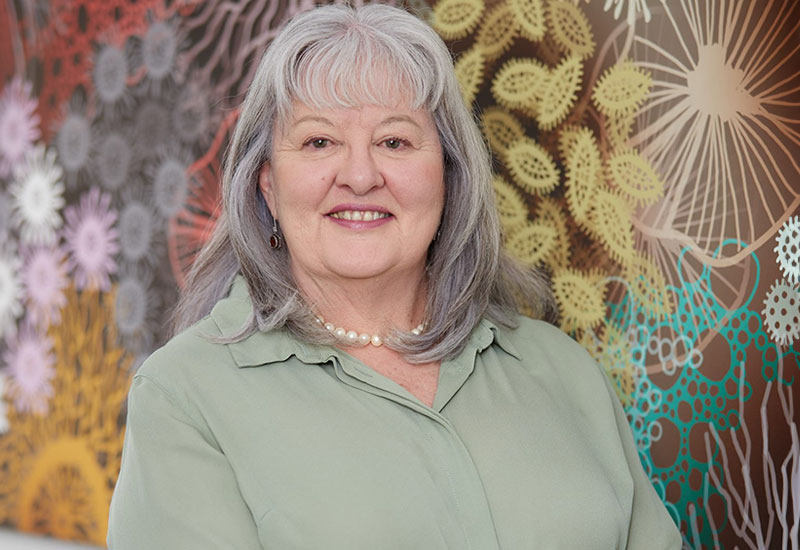
As SARChI Chair in Vaccinology, Professor Anna-Lise Williamson has spent 15 years advancing local expertise and technical capacity to support a pipeline of new vaccines for Africa.
Based at the IDM, her focus as chair was to develop new human and animal vaccines and shed light on infection with human papillomaviruses (HPVs). In both areas, she’s enabled groundbreaking work.
Significantly, Professor Williamson directed a team that carried out preclinical development of several HIV vaccines, including two that were moved into clinical trials. Supporting vaccine design and construction, and the generation of pre-clinical data to support regulatory documentation, these were the only HIV vaccine candidates developed in Africa to go into human clinical trials.
“This work shows that academic institutions in South Africa can do these projects and contribute meaningfully to the global initiative to make a successful prophylactic HIV vaccine,” said Williamson.
“The considerable expertise and experience gained during the HIV vaccine development programme can also be used to develop other candidate vaccines for Africa.”
A significant number of different candidate HIV vaccines were also constructed and tested at UCT during her time as chair, as well as vaccines for salmonella and the Bacille Calmette-Guérin (BCG) TB vaccine.
“The considerable expertise and experience gained during the HIV vaccine development programme can also be used to develop other candidate vaccines for Africa, including veterinary vaccines and coronavirus vaccines,” she said.
Besides developing vaccines, Williamson also works to understand the natural history of infection with HPV and the impact of coincident HIV infection.
To date, she has enabled the identification of 10 novel HPV types and collaborated on several projects using HPV detection as a diagnostic tool or to determine the prevalence of the virus in different populations.
This work has local and international relevance. For example, students trained on her HPV projects are now also working for South Africa’s National Health Laboratory Service (NHLS), as well as the FIND global alliance for diagnostics, which seeks to ensure equitable access to reliable diagnosis worldwide.
History-making drug discovery
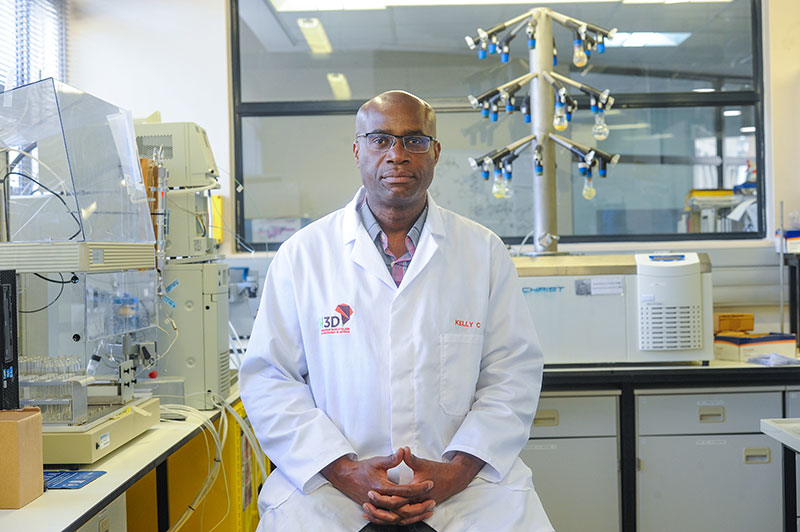
Working at the interface of biology, chemistry and medicine, Professor Kelly Chibale is pushing the frontiers of science for African-led research in malaria, TB and antibiotic-resistant microbial diseases.
As SARChI Chair in Drug Discovery, and director of the Holistic Drug Discovery and Development Centre (H3D), he has established world-class facilities and led groundbreaking studies that enable innovation.
“There’s a very strong link between the genetics of a population, the social and physical environment in which patients live, and treatment of disease,” said Professor Chibale. “Therefore, it’s a no-brainer that building drug discovery capacity and capabilities in close proximity to the African patient is the way to address their real needs.”
Putting that sentiment into practice, Chibale led breakthrough research identifying a potential new drug to protect from, cure and prevent transmission of malaria. The discovery is the first malaria clinical candidate to come out of Africa with the potential to be used as part of a single-dose cure.
“It is history made, in terms of having achieved this for the first time in Africa using modern approaches to discovering medicines, and in advancing both basic and clinical sciences,” he said.
“The chair was a catalyst providing the resources needed for training students, building partnerships and creating infrastructure that never existed before.”
Research such as this, as well as Chibale’s other work related to TB and antibiotic-resistant microbial diseases, underscores his contributions not just to science, but also to the development of critical talent, research collaborations and infrastructure on the continent.
Indeed, Chibale’s time as chair has been marked by significant growth. Today, there are over 70 people working at H3D, and the centre has contributed to several global interdisciplinary projects, for example with the Bill and Melinda Gates Foundation.
“The chair was a catalyst, providing the resources needed for training students, building partnerships and creating infrastructure that never existed before,” he said.
“This is now being used to build and expand the research ecosystem and community across Africa, to learn from what we started here in South Africa.”
Understanding immune responses
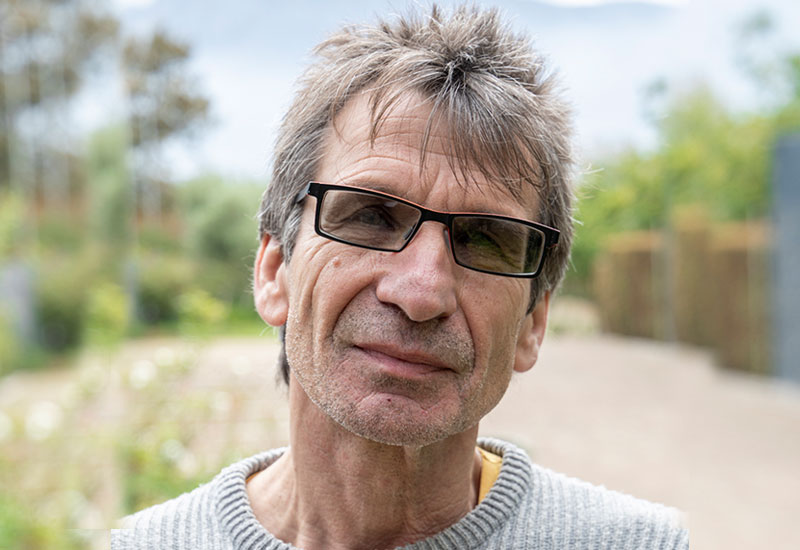
Professor Frank Brombacher, SARChI Chair in Immunology of Infectious Diseases in Africa, is leading research at UCT to better understand how the human immune response reacts to parasitic infections that have a devastating impact on the continent.
Four of the top 10 human infectious diseases declared by the World Health Organization (WHO) have been investigated in his laboratory, including TB and African sleeping sickness. He also studies schistosomiasis, a disease caused by parasitic worms that is second only to malaria as the most globally devastating parasitic disease.
The focus of his research is on understanding immune responses in infected patients. Specifically, his work investigates the molecular and cellular mechanisms underlying the immune response to parasitic infections, with a specific emphasis on the role of cytokines and immune cells.
The approach used in this work is centred on a “gain of knowledge by loss of function” method based on deficient mouse models, generated by gene targeting in embryonic stem cells.
Based at the International Centre for Genetic Engineering and Biotechnology, Professor Brombacher has been internationally recognised as a leading scholar in his field. The quality and impact of his research outputs have built frameworks for future research that improve health outcomes for Africans and other patients globally.
Read more about the research focal areas.
 This work is licensed under a Creative Commons Attribution-NoDerivatives 4.0 International License.
This work is licensed under a Creative Commons Attribution-NoDerivatives 4.0 International License.
Please view the republishing articles page for more information.
Research & innovation



